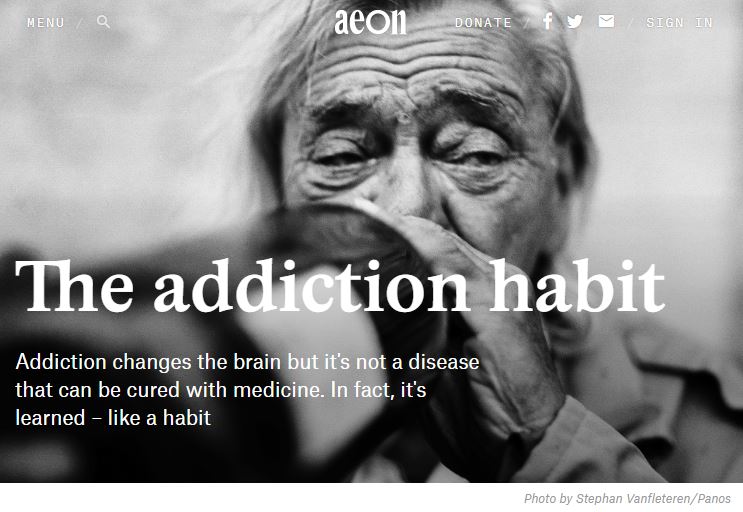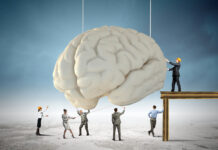For aeon, neuroscientist and psychologist Marc Lewis declares, “Addiction changes the brain but it’s not a disease that can be cured with medicine. In fact, it’s learned – like a habit.”
-
Getting addicted seems more like a process of getting maladapted to the presence of substances, than it is to contracting some kind of external disease.
-
Thank you for this. It was a succinct and informative piece about addiction that largely reaffirmed concepts I already know that I think will help the less informed understand addiction a little better.
“More intriguingly, a number of studies have shown that the belief that addiction is a disease actually decreases the odds of sustained recovery. AA has long overwritten the notion of self-generated change with that of vigilant control: once an addict, always an addict, so watch out!”
What’s so sad is that AA/NA recovery model has such abysmal actual long-term recovery rates and yet these programs are court-ordered to those needing real help. The whole 12 steps concept of considering oneself powerless over their own behaviour and yet accountable to others for that behaviour sounds like blaming the addict while simultaneously reassuring them it’s not really their fault. How this approach helps anyone stop a negative behaviour is beyond me and I boggle at the mental gymnastics needed to actually succeed with this method. I once had a heated discussion with a fellow patient trying to claim their powerlessness over their addiction. And yet, their higher power wasn’t a powerful being such as God or Allah or Buddha. No, it was trees. They’re pagan, so the trees are responsible for keeping them from drinking. I don’t think the National Forestry Service is in danger of receiving mental health dollars anytime soon but it’s an interesting con that person is playing on themself.
-
The author describes his own addiction as a “compulsion;” I consider “compulsion” to be a habit and the most accurate term for “addiction.”















